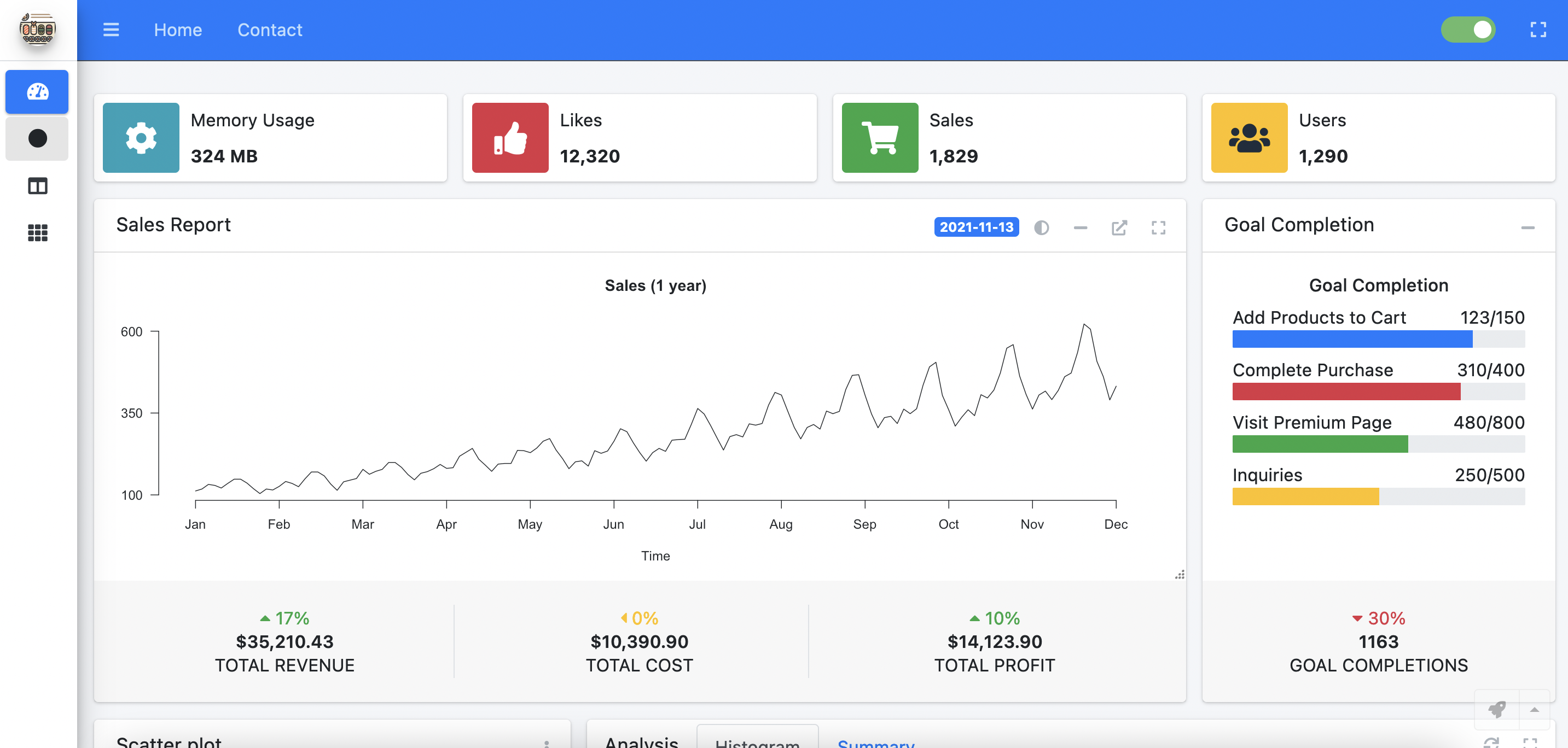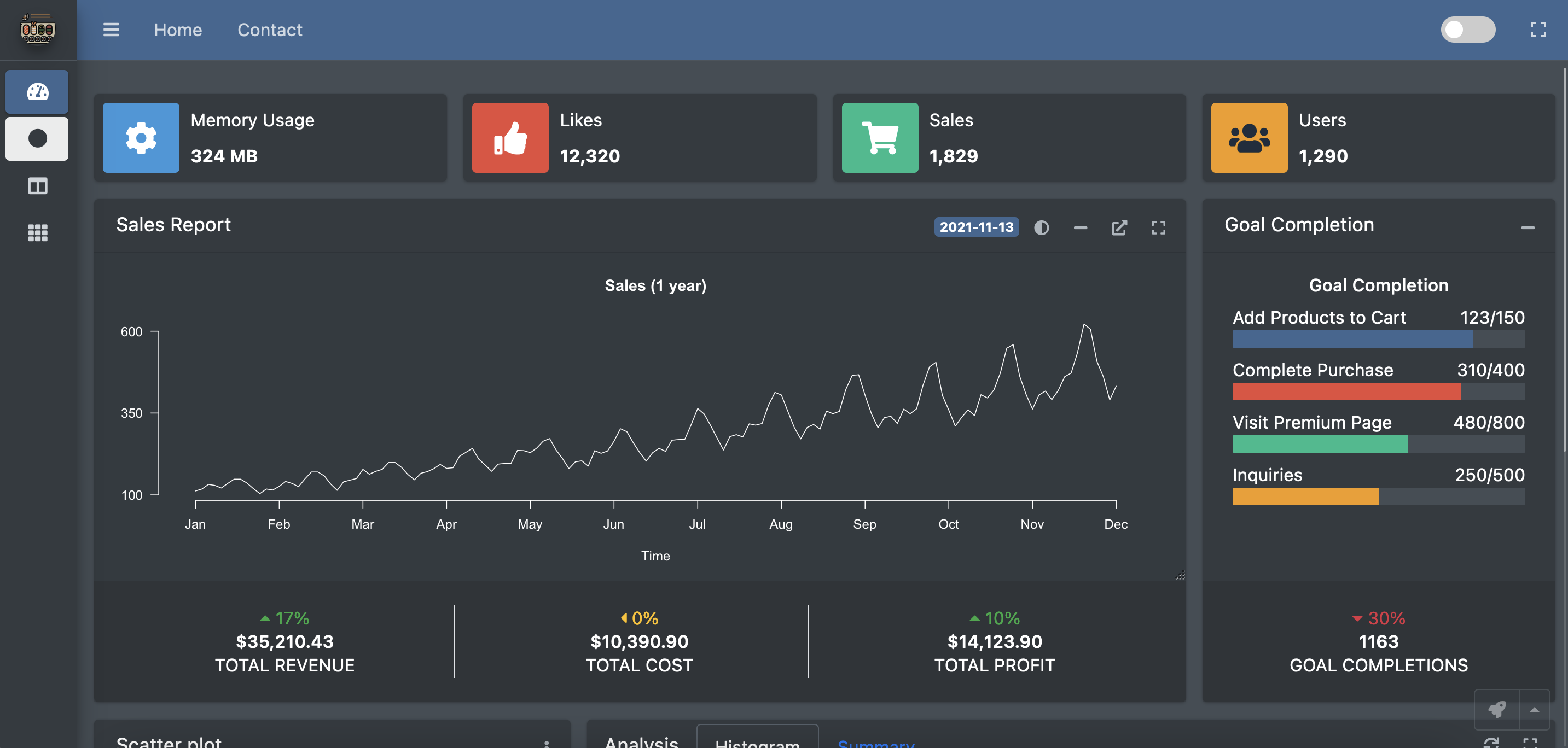The hardware and bandwidth for this mirror is donated by METANET, the Webhosting and Full Service-Cloud Provider.
If you wish to report a bug, or if you are interested in having us mirror your free-software or open-source project, please feel free to contact us at mirror[@]metanet.ch.
The goal of shidashi is to provide framework for R-shiny templates, especially for dashboard applications.


Default template (using AdminLTE) provides two themes: light vs dark
You can install the released version of shidashi from CRAN with:
install.packages("shidashi")The demo app requires to install the following extra packages
install.packages(c("ggExtra", "rmarkdown"))Once you have installed these packages, run the following command from R:
library(shidashi)
project <- file.path(tools::R_user_dir('shidashi', which = "data"), "AdminLTE3")
# `use_template` only needs to be called once
use_template(project)
render(project)To start a shidashi project, open RStudio
menu from the navigation bar:
File > New Project… > New Directory > Shidashi Shiny Template (*)
_*You might need to scroll down to find that template option_.
Please enter the project information accordingly. By default, the
Github user is dipterix, and theme is
AdminLTE3, which lead to the
default template.
If you want to start from a bare-bone template, change the
theme option to be AdminLTE3-bare.
A typical shidashi project has the following file
structure:
<project root_path>
├─modules/
│ └─<module ID> - Module folder; folder name is module ID
│ ├─R - Module functions shared across UI and server
│ ├─module-ui.html - Module HTML template
│ └─server.R - Module-level server function
├─R/ - Common functions shared across modules
├─views/ - Small snippets (see `?include_view` function)
├─www/ - Static files: css, js, img, ...
├─index.html - Template for homepage
├─modules.yaml - Module label, order, icon, badge..
└─server.R - Root server function, usually no modification is requiredCreate your own Github repository with name
shidashi-templates. Add folders named by the themes. Then
people can install your themes as templates through
RStudio. An easy start is to fork this
repository.
These binaries (installable software) and packages are in development.
They may not be fully stable and should be used with caution. We make no claims about them.